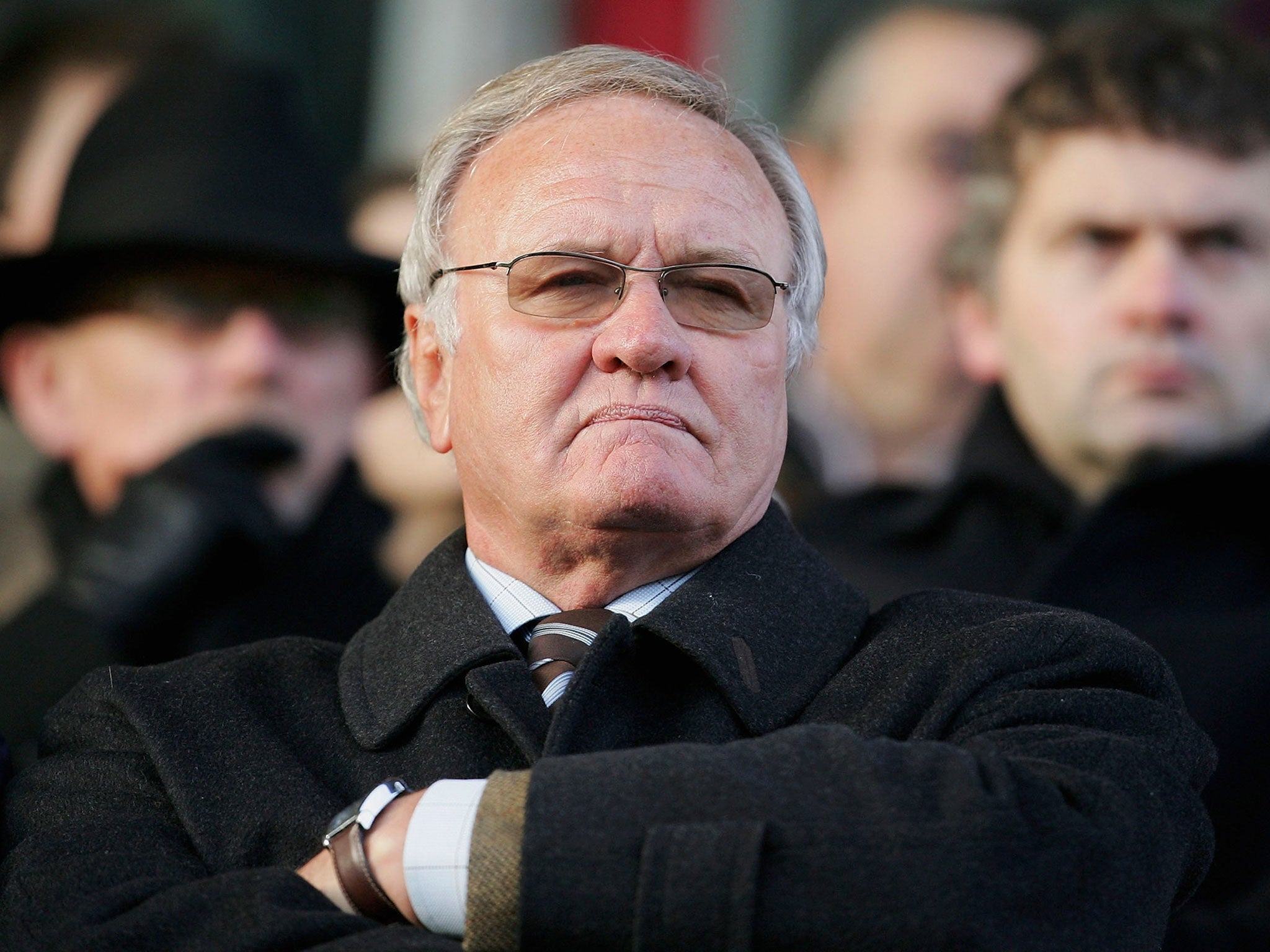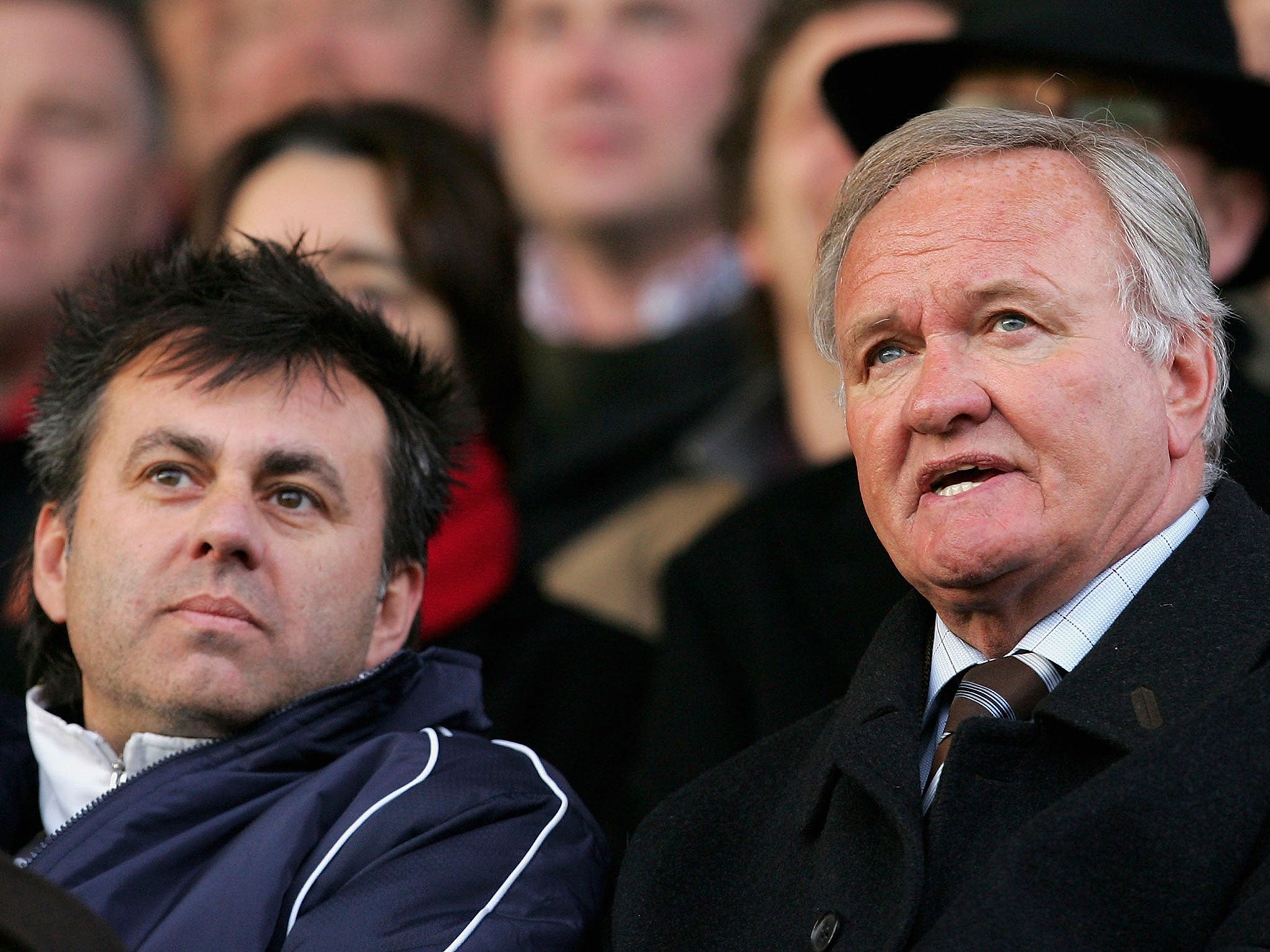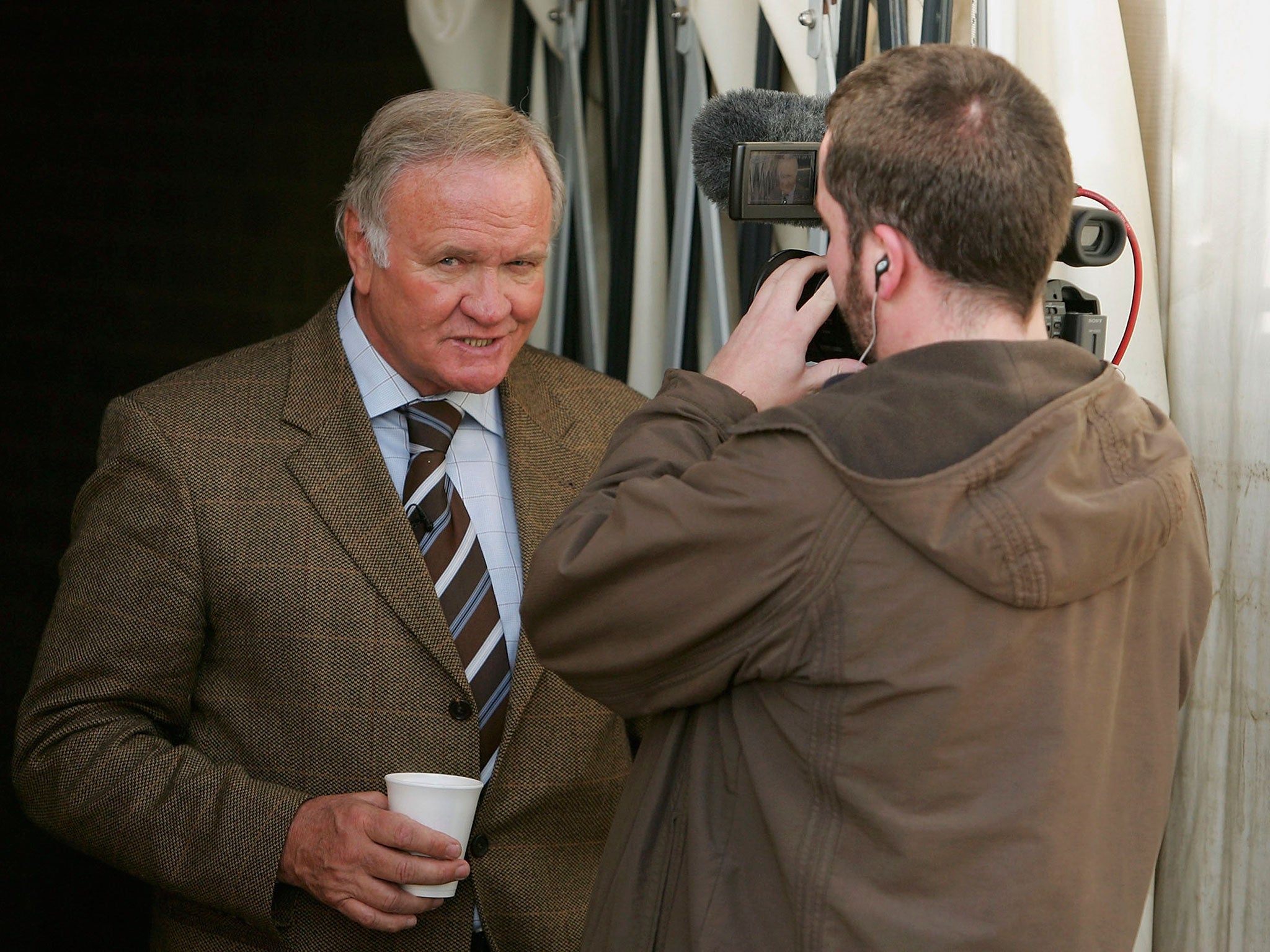From Ron the manager to Ron the racist: Atkinson's career shredded in just ten seconds
In a new autobiography the life of the former Manchester United manager is laid bare for all to see

Your support helps us to tell the story
From reproductive rights to climate change to Big Tech, The Independent is on the ground when the story is developing. Whether it's investigating the financials of Elon Musk's pro-Trump PAC or producing our latest documentary, 'The A Word', which shines a light on the American women fighting for reproductive rights, we know how important it is to parse out the facts from the messaging.
At such a critical moment in US history, we need reporters on the ground. Your donation allows us to keep sending journalists to speak to both sides of the story.
The Independent is trusted by Americans across the entire political spectrum. And unlike many other quality news outlets, we choose not to lock Americans out of our reporting and analysis with paywalls. We believe quality journalism should be available to everyone, paid for by those who can afford it.
Your support makes all the difference.It only takes a moment to shred your reputation, though the consequences linger, poisoning you time and time over when the storm has passed and the scandal has moved on. Say what you want about Ron Atkinson but he doesn’t flinch from any of that. The racist comment which in many ways finished him as a football authority is even referenced in the flyleaf of his new autobiography.
What he describes as “a phrase I shall always regret” barely needs recapping, given that it has come to define him. A microphone feed remained on after Chelsea had blown their Champions League semi-final at Monaco in 2004, for which he was an ITV analyst. When he racially denigrated Marcel Desailly half of the Middle East heard his words.
There is an element of self-justification about Atkinson’s re-telling of this. A production assistant who should have disconnected the feed decided she would head to the players’ tunnel that night, a place “where she has no real business to be,” he says. He was repeating a phrase about Desailly that at least two managers he knew had used. Even less convincing: “I didn’t shout it. I mumbled it.” But more vivid is the story of how he gravitated from being ‘Ron the Manager’ (the title of a Sky Sports series which turned him into a Sir John Harvey-Jones of the football world) to become ‘Ron the Racist.’
He was approached by Adrian Chiles to do a film about the Desailly Affair, entitled ‘What Ron Said’, and wound up on a radio phone-in in America’s Deep South, before arriving at a museum of racist memorabilia. (“Halfway through, I asked myself what on earth I was doing here.”) He reached the depths of ‘Wife Swap’, knowing that he would be paired up with a black woman because “they would think it would make good television.” Instead, he ended up with Tessa Sanderson, with whom he got on so well that he and his wife ended up being invited to her wedding. No-one can say Atkinson wasn’t chastened and didn’t seek forgiveness.
There is a difference between a racist and the perpetrator of a racist comment and while only those who know Atkinson well are qualified to say if he is the latter, there was certainly a more substantial ethnic dimension to his life in 1980s football than to most of his kind. Not just Laurie Cunningham, Brendan Batson and Cyrille Regis at West Bromwich Albion but Remi Moses, the midfielder he loved when he managed Manchester United. It is hard to leave the book - Ron Atkinson – The Manager - with the impression of a bigot.

There is certainly room to form an opinion because Atkinson’s ghost-writer Tim Rich, a frequent contributor to The Independent, delivers a work of quiet persistence, carefully packing the story with rich detail. Some ghosted autobiographies artificially dramatize and stylise. Rich resists those temptation. He is in the background. Atkinson and his publishers have chosen well.
Consequently, the book transports us to the heart of 1980s and 1990s football, where Atkinson clearly found inestimable joy in working life despite being one of the few unfortunates to be up against Liverpool in their pomp, then Arsenal and Manchester United as they knocked them off their perch.
His equal enjoyment of the high life has contributed to him not always being taken as seriously as he might. But the book’s jewel - its small detail - reveal an appreciation of what made the individuals he managed tick. Cunningham, who died so desperately young, and team-mate Regis for example.

Cunningham’s was always characterised as an extrovert, though it masked a melancholy. “The difference between Laurie and Cyrille was that Cyrille had been an electrician,” Atkinson writes. “He had seen the real world. If the pressures of football and the racism bothered him, he didn’t let it show. He would make jokes about dusting off his toolbox and his monkey wrench. ‘I can always go back.’ he would say.”
The stories and the humanity fall from the pages. Paul McGrath and the gymnasium bike. John Barnes’ father and the army parachutists. Dean Saunders and the Villa Park tannoy. But what separates Atkinson from both Ferguson - who after taking his Old Trafford job claimed he’d inherited a glorified drinking club - and Liverpool’s Bob Paisley was their greater - almost brutal - toughness. That was what made them serial winners, while Atkinson collected two FA Cups at United and two League Cups at Aston Villa. Such a life, such stories to tell and such regret that ten seconds in a television studio came to transcend it all.
Ron Atkinson – the Manager de Coubertin Books £20
Join our commenting forum
Join thought-provoking conversations, follow other Independent readers and see their replies
Comments